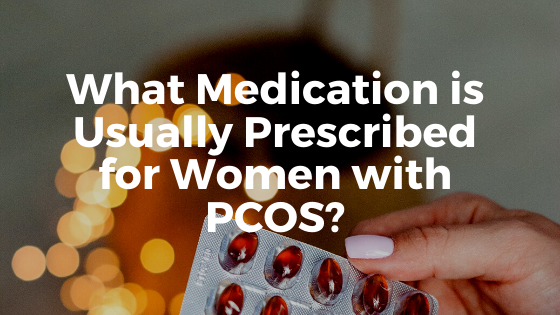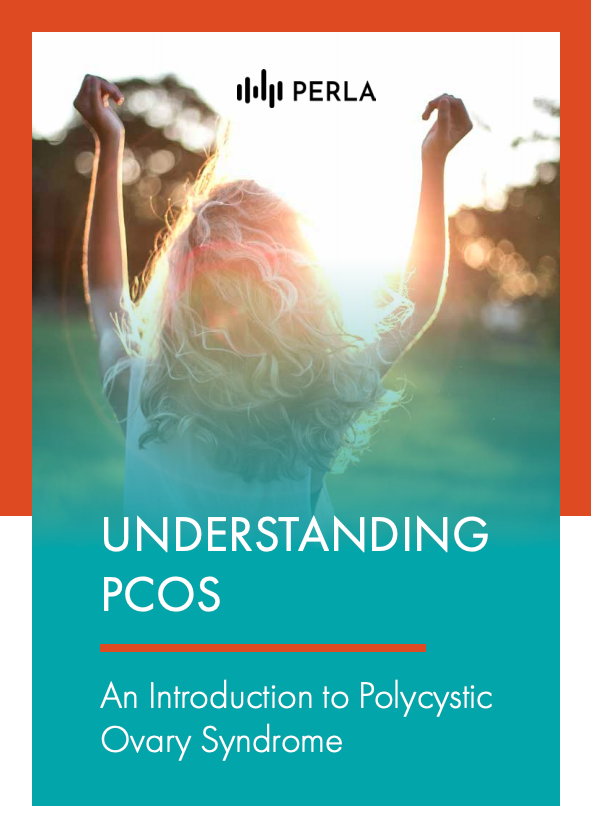Which options are there to treat PCOS? There currently is no cure for PCOS, but there are medications that can help improve the symptoms you might be experiencing. For women who have a mild form of PCOS, with fewer symptoms and risk factors, losing weight through diet and exercise may be enough to improve their metabolic and reproductive health. But for others who are at risk of long-term complications or have difficulty conceiving despite lifestyle interventions, specific medications are recommended.
Your doctor will discuss with you which treatment options there are for you – this the best opportunity to ask them all of the questions you may have about the medications and treatments. Never start any medication or supplement on your own, but consult with your doctor first. Together you can find a treatment that best fits for you and your specific situation. Let’s have a first look of the different treatment options available, so you can then talk to your doctor and find out what works best for your situation:
Medications for PCOS
The medication which is recommended to you will depend a lot on your goals, specifically if you desire to get pregnant, as well the specific symptoms that affect you. The standard therapy usually falls into two categories: maintenance treatment for PCOS-related symptoms and treatment of infertility.1
Aside from helping with the symptoms you are currently experiencing, a well-rounded treatment plan should prevent the occurrence of long-term complications.
Limitations of Medications
There are some limitations of the medication in PCOS: For instance, hormonal contraceptives (birth control) and anti-androgen medicines are the standard treatment to reduce androgen levels and treat symptoms like excess hair growth, acne, and irregular menstruation.2 However, oral contraceptives block ovulation and anti-androgens may cause deformities in a male fetus3 , which is why they should not be taken if you want to get pregnant or are pregnant.
That’s why doctors usually focus on your specific treatment goal, or the most bothersome symptoms, to decide which treatment works for you. Let’s take a look at the commonly prescribed medications for PCOS.
Medications for PCOS-related Symptoms
These are the commonly proposed treatments for PCOS and its classic symptoms: hirsutism, menstrual irregularities, acne, and obesity.
Hormonal birth control. Hormonal contraceptives, including the pill, shot, patch, and progestin-containing intrauterine device (IUD) helps improve your menstrual cycle and lower your risk of endometrial cancer.4 Combined oral contraceptive pills containing both estrogen and progesterone are the first-line treatment for PCOS. They can help improve acne, reduce hair loss, and excess facial and body hair growth.5
Insulin sensitizers. The most widely used insulin sensitizer for PCOS is metformin (a biguanide). Experts are split on how effective metformin is for weight loss and treating androgen-related symptoms such as hirsutism and acne. While it may be helpful for preventing type 2 diabetes, it does not seem to significantly reduce body weight and is less effective than clomiphene citrate in inducing ovulation.6,7
Anti-androgen medicines. Some of these drugs bind to androgen receptors to block the effects of male hormones, such as testosterone and dihydrotestosterone (DHT), other antiandrogen medications suppress the production of these hormones in the ovaries. Their mechanism of action addresses many PCOS symptoms such as hirsutism, oily skin and acne, and scalp hair loss.These drugs can cause problems during pregnancy, so do not take them if you want to get pregnant or are pregnant. If you are not pregnant and don’t want to become pregnant, effective contraception is required when you take these medications.
Medications for Infertility
These are the common medications your doctor might recommend if you want to get pregnant:
Anti-estrogen medication. Clomiphene is an FDA approved treatment for infertility. This drug triggers the pituitary gland in the brain to increase the production of follicle-stimulating hormone (FSH) and luteinizing hormone (LH), causing ovarian follicle growth and the initiation of ovulation. The rate of ovulation is said to be higher when clomiphene and metformin are combined.8
Aromatase inhibitors. Letrozole is approved by the FDA for the treatment of breast cancer but is being used “off-label” to induce ovulation. Recent meta-analytical literature on letrozole showed that is more effective than clomiphene citrate in improving live birth and pregnancy rates.9
This has led some doctors and researchers to recommend letrozole as a first-line treatment for PCOS-related infertility. In a large study conducted by the Reproductive Medicine Network, only 10% of women failed to ovulate on letrozole compared to 25% of women on clomiphene.10
Gonadotropins. Women who fail to get pregnant using clomiphene or letrozole may be treated with gonadotropin therapy. It is an injectable form of FSH, the hormone that plays a role in producing mature eggs in the ovaries. According to research, about 60% of women with PCOS become pregnant using this treatment.11
This is just a short overview of the treatment options in PCOS that you can discuss with your doctor. Your doctor and care team will determine what will work best for you and your treatment goals. Having regular check-points with your doctor is important, so they can monitor your symptoms and overall health. If you are experiencing side effects during and/or after your treatment, or have any other concerns, reach out to your care provider immediately.
Although prescribed medications can help improve some of your symptoms, taking them does not replace the benefits of exercise and a healthy diet. It is best to work with a multidisciplinary care team to get an individualized care plan, including treatment option, nutrition and exercise plans.
Sources:
- Legro RS. Evaluation and treatment of polycystic ovary syndrome. In: Feingold KR, Anawalt B, Boyce A, et al., eds. Endotext. MDText.com, Inc.; 2000. Accessed May 18, 2020. http://www.ncbi.nlm.nih.gov/books/NBK278959/
- Luque-Ramírez M, Nattero-Chávez L, Ortiz Flores AE, et al. : Combined oral contraceptives and/or antiandrogens versus insulin sensitizers for polycystic ovary syndrome: a systematic review and meta-analysis. Hum Reprod Update. 2018;24:225–41. 10.1093/humupd/dmx039
- Brokken LJS, Adamsson A, Paranko J, Toppari J. Antiandrogen exposure in utero disrupts expression of desert hedgehog and insulin-like factor 3 in the developing fetal rat testis. Endocrinology. 2009;150(1):445-451. doi:10.1210/en.2008-0230
- Polycystic ovary syndrome | Womenshealth.gov. womenshealth.gov. https://www.womenshealth.gov/a-z-topics/polycystic-ovary-syndrome. Published 2019. Accessed May 18, 2020.
- Revised 2003 consensus on diagnostic criteria and long-term health risks related to polycystic ovary syndrome (PCOS). Human Reproduction. 2004;19(1):41-47. doi:10.1093/humrep/deh098
- Lashen H. Role of metformin in the management of polycystic ovary syndrome. Ther Adv Endocrinol Metab. 2010;1(3):117‐128. doi:10.1177/2042018810380215
- Mathur R, Alexander CJ, Yano J, Trivax B, Azziz R. Use of metformin in polycystic ovary syndrome. American Journal of Obstetrics and Gynecology. 2008;199(6):596-609. doi:10.1016/j.ajog.2008.09.010
- Legro RS, Barnhart HX, Schlaff WD, et al. Clomiphene, metformin, or both for infertility in the polycystic ovary syndrome. N Engl J Med. 2007;356(6):551-566. doi:10.1056/NEJMoa063971
- Wang R, Li W, Bordewijk EM, et al. First-line ovulation induction for polycystic ovary syndrome: an individual participant data meta-analysis. Human Reproduction Update. 2019;25(6):717-732. doi:10.1093/humupd/dmz029
- Roque M, Tostes AC, Valle M, Sampaio M, Geber S. Letrozole versus clomiphene citrate in polycystic ovary syndrome: systematic review and meta-analysis. Gynecological endocrinology : the official journal of the International Society of Gynecological Endocrinology 2015; 31:917-921
- Barbierri R, Ehrmann D. Patient education: Polycystic ovary syndrome (PCOS) (Beyond the Basics). UpToDate. https://www.uptodate.com/contents/polycystic-ovary-syndrome-pcos-beyond-the-basics. Published 2020. Accessed May 18, 2020.


